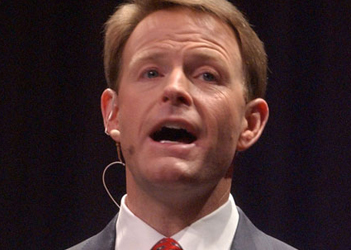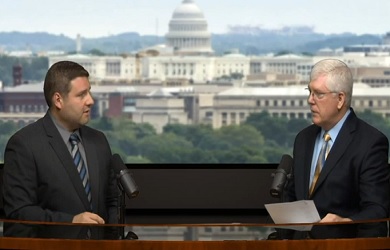Back in 1990, Pat Robertson created the American Center for Law and Justice as a right-wing alternative to the American Civil Liberties Union here in the United States. But over the last two decades, and especially in recent years, the organization has begun focusing on work overseas and opening offices in different countries, creating that European Center for Law and Justice, based in Strasbourg, France, and the Slavic Center for Law and Justice, based in Moscow, Russia.
And now it looks like they are branching out into Africa as well, where the organization intends to play a role in helping draft constitutions in both Zimbabwe and Kenya:
The ACLJ does not take international expansion lightly. In fact, we do not expand unless we are called to. Each of our international offices – France, Russia, Israel, and Pakistan – was formed because the ACLJ was asked to come and help form organizations modeled on the ACLJ-USA. While each country expansion is unique, I wanted to tell you about why we’re expanding into Africa, specifically Kenya and Zimbabwe.
Earlier this year, we were asked to accompany a women’s ministry to Zimbabwe because the leaders of the ministry felt that our sophisticated legal assistance was needed. If you don’t know much about Zimbabwe, know it is sanctioned by the United States, battling AIDS, and in the midst of an economic crisis. When we arrived in Zimbabwe in March, we were greeted warmly by citizens and government leaders. Now, just months after our first trip, we’re opening a full-time office in the country’s capital.
While our work in Zimbabwe focuses primarily on the country’s constitution drafting process, we’ll also be providing legal training and legal research facilities to attorneys throughout the country. Of course, one can never forget the hardships faced by the good people of Zimbabwe. We have taken proactive steps to assist orphanages and single mother’s centers. In Zimbabwe, our mission is threefold: (1) help train attorneys while working on the draft constitution, (2) promote economic empowerment, and (3) provide humanitarian assistance when we are able. Part of the African Center for Law & Justice’s launch in Harare is a neighborhood cleanup project in partnership with the City of Harare.
Our work in Kenya began a very different way. A good friend and pastor from a church in Iowa, who I met during the Iowa caucuses, introduced me to a well-known Bishop from Kenya who was interested in opening an operation similar to ACLJ-USA. Kenya, like Zimbabwe, is also going through a constitution drafting process and this Bishop wanted to make sure that he and the thousands of pastors that are part of his denomination knew how to properly comment on the draft constitution when speaking to their parishioners and the media. Because of Kenya’s sizable Muslim population, estimated at about 10 million (roughly 1/4 of Kenya’s population), this predominately Christian country is prepared to constitutionalize Kadhis’ Courts (Kadhi is Arabic for judge) to handle matters such as family law, inheritance, marriage, and divorce. These would be official, binding courts in Kenya’s judiciary.
The Bishop and his fellow pastors have decided to speak out against the constitutionalization of the Sharia Courts and have called on the ACLJ to travel to Kenya to setup a full-time legal and government affairs operation in Nairobi where we’ll work with church leaders on this crucial issue.







